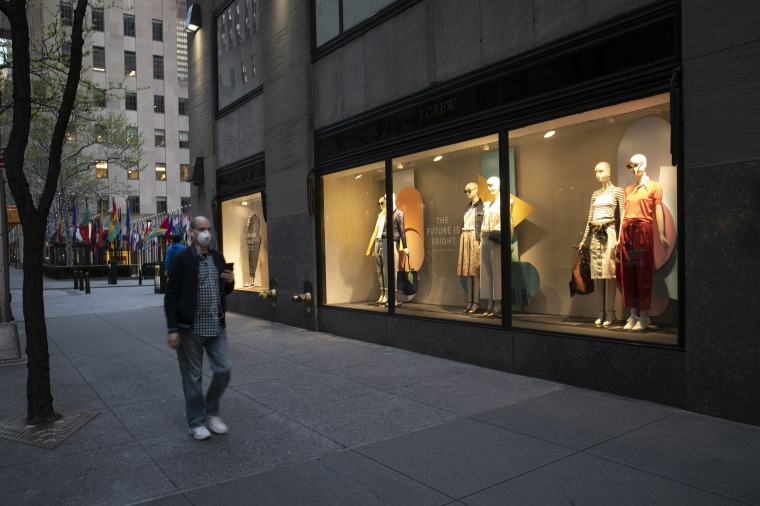J. Crew Group Inc filed for bankruptcy protection on Monday with a plan to hand over control to lenders, adding to a list of brick-and-mortar retailers pushed to the brink by widespread store closures in response to the COVID-19 pandemic.
The New York-based chain, known for preppy clothing at times worn by former first lady Michelle Obama, filed for bankruptcy in a Virginia federal court with an agreement to eliminate its roughly $1.65 billion of debt in exchange for ceding ownership to creditors. It is the first big retailer to file during the pandemic.
Anchorage Capital Group, Blackstone Group Inc's GSO Capital Partners and Davidson Kempner Capital Management hold significant portions of J. Crew's senior debt and are in line to take control of the company.
They are also providing about $400 million of fresh financing to aid J. Crew's operations, while it navigates Chapter 11 bankruptcy proceedings, the company said in a statement.
The coronavirus outbreak forced the company to temporarily close its nearly 500 J. Crew, J. Crew factory and Madewell stores. In addition, the economic fallout and market turmoil stemming from the public health crisis resulted in J. Crew shelving plans for an initial public offering of its Madewell business.
Madewell will remain part of J.Crew Group and Libby Wadle will continue in her role as Chief Executive Officer of Madewell, the company added.
J. Crew had planned to use proceeds from the IPO to reduce its debt rather than use bankruptcy to address its strained finances, the person familiar with the matter said.
Before the pandemic, J. Crew was already struggling along with other traditional brick-and-mortar retailers to compete amid a consumer shift to online shopping.
It also suffered after a strategic misstep of raising prices that turned off some shoppers. Talks in 2014 to sell J. Crew to Japan's Fast Retailing Co, the owner of the Uniqlo apparel chain, fell apart.
The company had avoided bankruptcy in 2017 in a deal with creditors that reduced total debt and pushed out due dates on obligations.
But its struggles continued. Millard "Mickey" S. Drexler, a longtime leader of the chain known for his fashion acumen who also at one point helmed Gap Inc, conceded he misjudged how technological developments would alter the retail landscape.
He stepped aside as J. Crew's chief executive in 2017, and last year relinquished his seat as board chairman.
